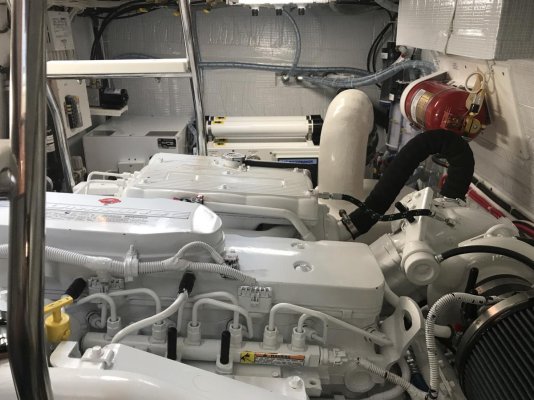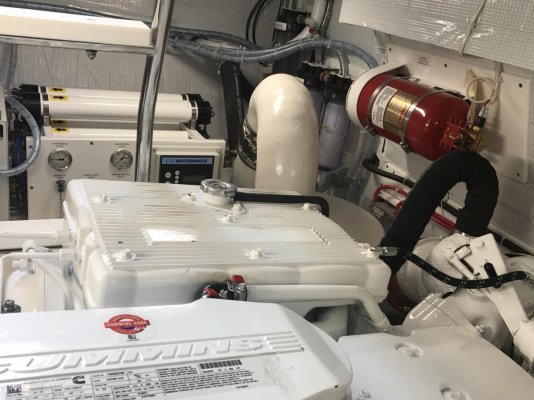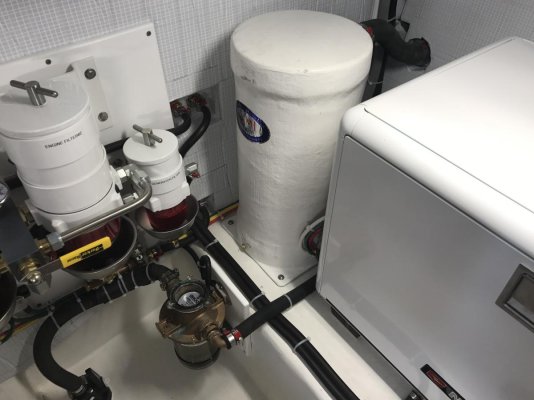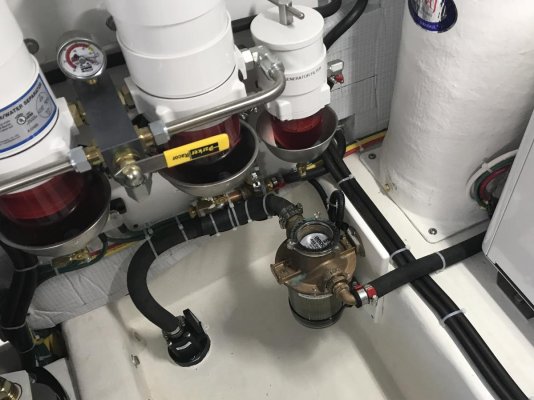So Bruce, since you have an engine that is painted Cummins White, will you touch up the paint as needed? I never really thought about it, but my boat came with a can of Cummins White spray paint that I have used on spots as needed.
Dave,
I am referring to the engines you see where people just let rip with a spray can and cover up the underlying mess of rust and neglect.
If I had need of repainting a part, of course I'd paint it.
I have learned that it is typically far easier to maintain something than it is to restore it. I wash and use my WD-40 not only to clean and then preserve but to rid the engine of any salt that has entered the engine room.
That salt is the reason you get rust and rust makes life more difficult later. I find that the time I spend cleaning my engine and engine room is easy time that I enjoy. I get my hands on every inch of everything that I can reach. I inspect, I see and if necessary I repair.
When I am done, I have an engine that looks better than new and that makes me happy.
In spite of some of the dire warnings of doom, my experience is exactly the opposite. When our saildrive input shaft seal began leaking at year 9 of the last boat, it was easy to see where the problem was and everything came apart like the engine was new. The repair was finished in no time. I am sure that most of the engines I have seen in similar year boats that have been treated to more typical oil and filter services would have been more difficult to deal with. Just because of the rust.
I am not suggesting that everyone go out and wash their engine right away either. Before hitting the Cummins with my soap and hose I first called Cummins and then communicated with Tony Athens just to be sure there were no "issues" with harnesses I needed to be aware of on the common rail QSB. Both gave a thumbs up.
The Northern Lights generator in Esmeralde has a new injection pump and injectors under warranty. The new parts are not painted and the original Awlgrip paint used chipped and left hundreds of tiny pieces behind when the parts were changed. When I spoke to the people at a Northern Lights about washing things to clean up the mess, they were concerned about certain parts getting wet. I was very careful to avoid those areas and still got everything cleaned up.
I may paint the new parts in or I may just leave them. As long as they are clean and free of rust (and working properly) I am happy...
Bruce








